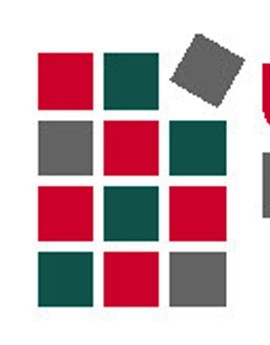
April 30, 2013 — The Bureau of Economic and Business Research at the University of Utah’s David Eccles School of Business is readying the launch of the Utah Community Data Project, an online system of community-level demographic, housing and socioeconomic data unprecedented in Utah for its breadth and for the access it will allow all Utahns.
The UCDP, found online at www.ucdp.utah.edu, will collect, store and disseminate data in an online environment rich in detail, with BEBR crunching the numbers, David Eccles School of Business IT providing backend support, and the DIGIT Lab at the U’s Department of Geography providing mapping functionality. Users will be able to explore various community metrics like economic status, educational achievement, health status and affordable housing opportunities via custom maps, tables, charts and more.
The information contained on the UCDP website—going live with limited functionality on April 26, with fuller functionality by year’s end—will be available to all citizens as well as large institutions, helping fulfill the project’s goal of “democratizing data.”
“Nobody is going to have the same breadth of information or the team expertise in mining data, as the Utah Community Data Project,” notes UCDP Director Pamela Perlich. “This is going to give people and organizations the tools to do the assessments they need in forming public policy or applying for grants, and all of the UCDP data will be academically defensible, transparent and have the benefit of BEBR’s technical expertise.”
The data available on the UCDP website will grow rapidly as more partners join the cause and make their numbers available. Already the UCDP has secured data from the Utah State Office of Education, the Utah Tax Commission, the Utah Department of Health, Salt Lake City Corporation and the Salt Lake City School District.
In the four years BEBR and DIGIT have been working to establish the UCDP, the organizations came to realize that few, if any, Utah organizations have the technical ability or institutional continuity to tackle such a wide-ranging and long-term project, particularly as recent economic conditions severely limited the ability of groups to do in-house data analysis. And while other states have similar community-data projects, the UCDP will be Utah’s first central repository for collecting, processing, warehousing and analyzing the many datasets critical for understanding the true needs of different populations and communities.
The creation and ongoing evolution of UCDP will prove invaluable for healthcare providers and researchers; city, county and state governments; school districts; housing authorities; urban planners; public and higher education administrators; nonprofit organizations; small-business owners and more.
Having the state’s most complete neighborhood data warehouse in one easy-to-access outlet like the UCDP will allow all manner of groups and individuals to access information they need at a fraction of the cost it would take for them to find and analyze the information themselves. And by housing it at the University of Utah, the work will be removed from an ever-shifting political environment to an academic one that prioritizes technical accuracy and public service.
To that end, Perlich and other members of the UCDP team plan to ultimately convene technical advisory and user groups to assist in both the content design and technical specifications.
About BEBR, David Eccles School of Business IT and the DIGIT Lab
The University of Utah has the expertise and institutional framework in place to produce and distribute these data products and other technical analyses. BEBR has an 80-year history of Utah-centric demographic, housing and economic research; more information can be found at www.bebr.utah.edu. The Information Technology department at the University of Utah’s David Eccles School of Business combines state-of-the-art hardware and software with forward-thinking staff trained to get the most out of that technology in serving the University community, including students and organizations like the Bureau of Economic and Business Research. The DIGIT Lab is one of the premier geospatial and cartographic centers in the nation, with a 25-year history of its own; more information can be found at www.digit.utah.edu.
